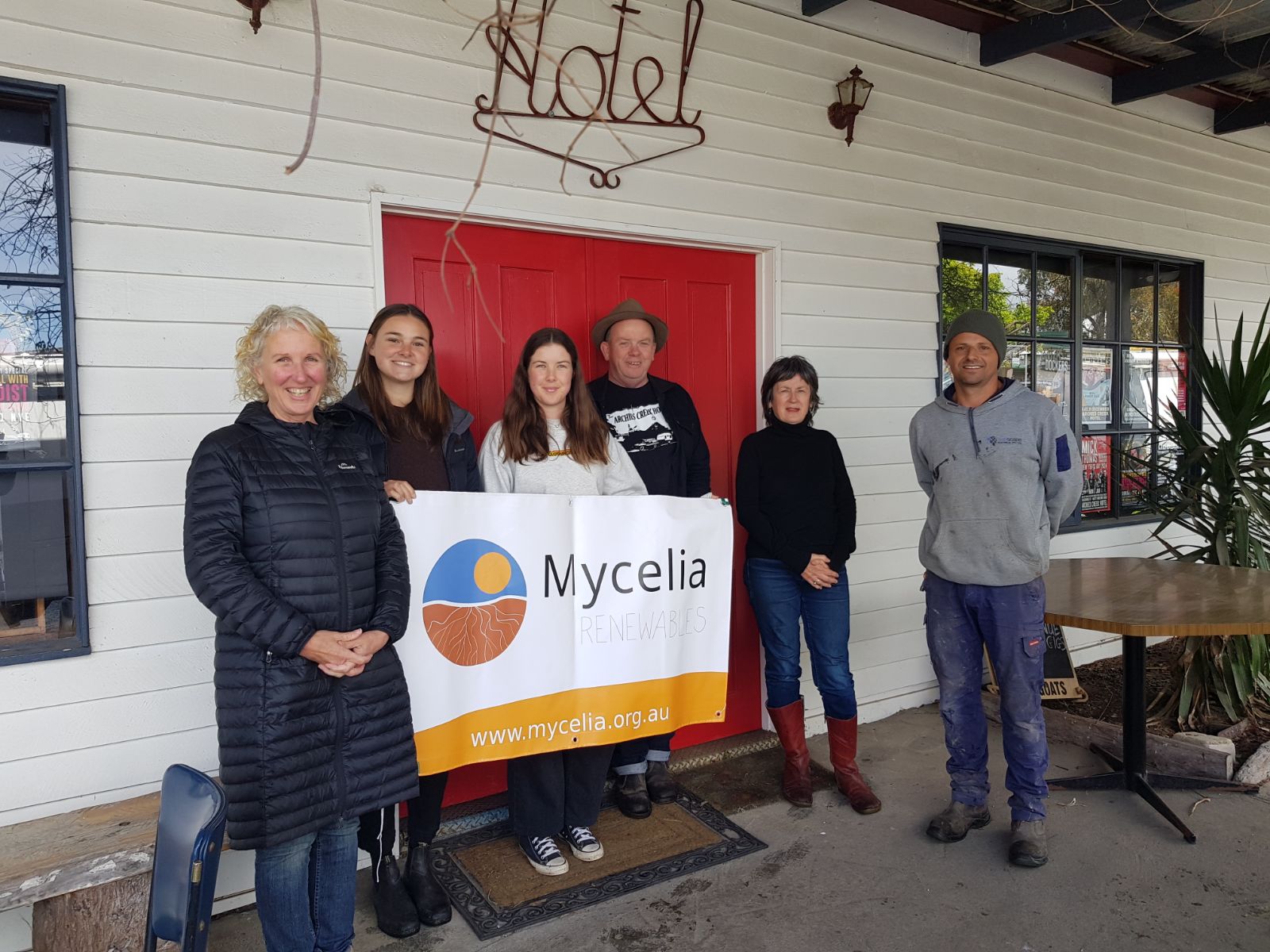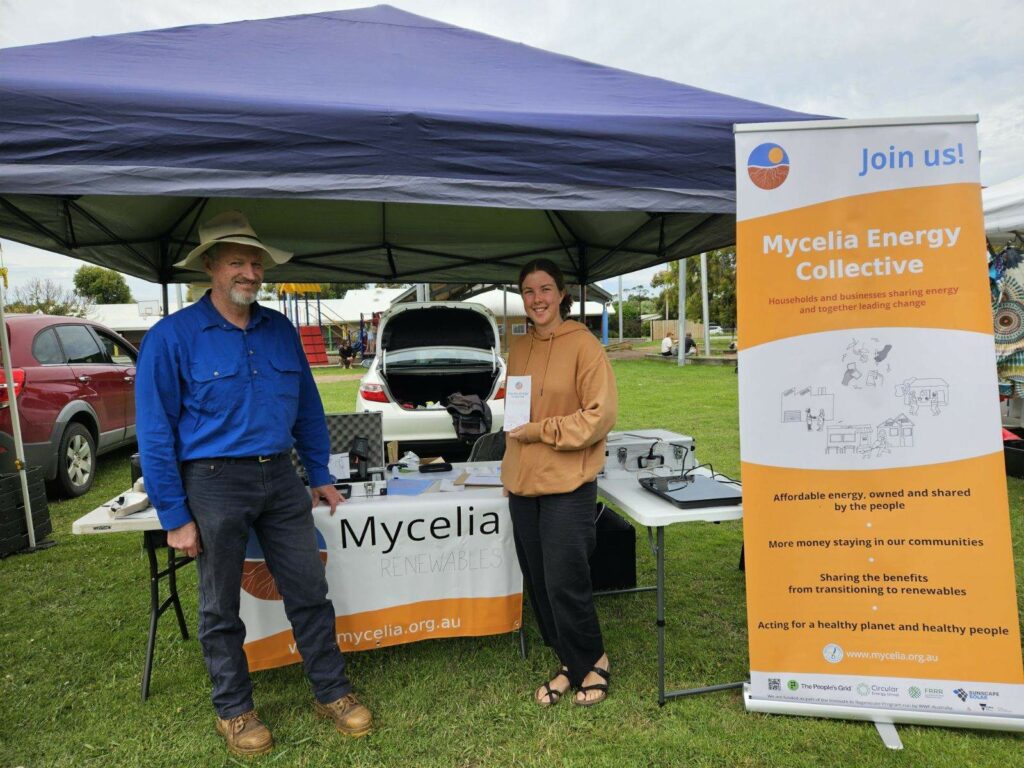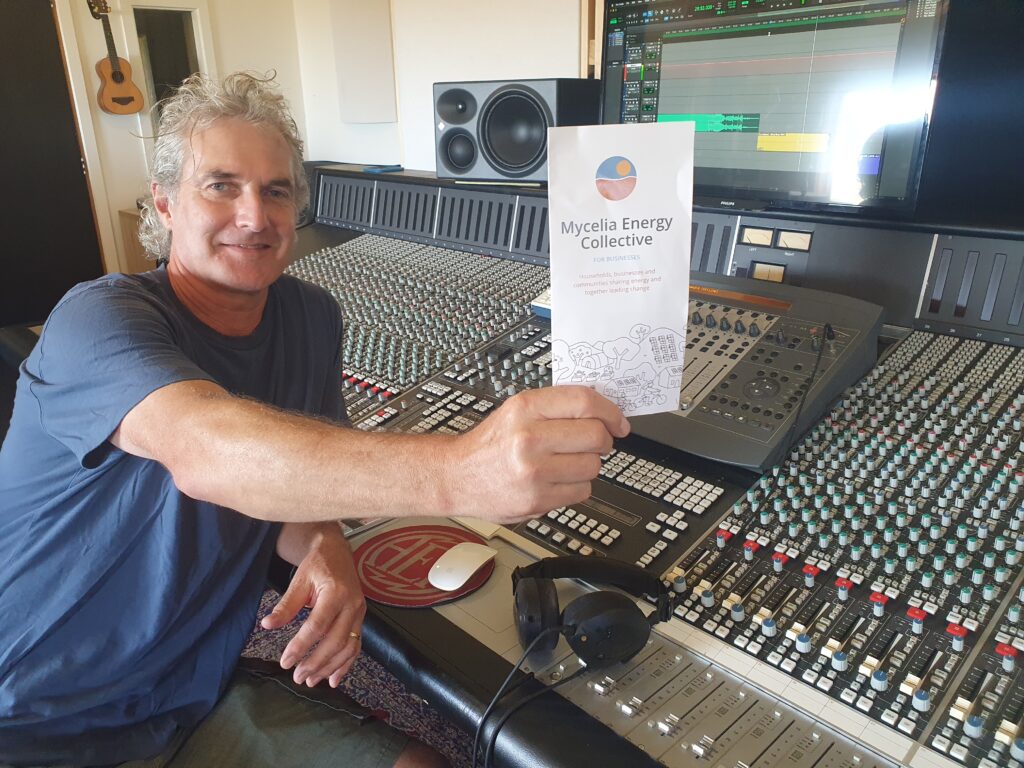Foundation for Rural & Regional Renewal (FRRR)
Mycelia Renewables is a social enterprise focused on supporting and enabling regenerative economy initiatives with Traditional Owners, rural businesses and regional communities, specifically in the areas of cultural and environmental governance and a fair transition to renewable energy.

Mycelia’s work on the ground to date is diverse and their value is far reaching, focussed on delivering tangible sustainability outcomes with communities, and aimed at strengthening and empowering through a service model of cooperative engagement, knowledge sharing, deep listening and co-design.
Mycelia has two central operations:
- Co-designing and owning or co-owning renewable energy projects with communities and small to medium enterprises (SMEs), to increase the amount of affordable renewable energy and to develop an independent income stream for Mycelia’s charitable purposes
- Supporting communities and SMEs to design and implement regenerative economy projects through their unique services at pro bono, low or full fee rates
Through an FRRR Not-For-Profit Fundraising Account, to date Mycelia has raised more than $70,000 to focus on engaging with local communities and SME’s across Victoria to co-design and implement renewable energy policies and strategies.
The group also created the Mycelia Energy Collective, an initiative which enables households and businesses with and without solar and batteries to share renewable energy through The People’s Grid. Currently supported by 104members, this has been their main focus of late. Mycelia is seeking additional funding to boost organisational capacity over the next 2-3 years to fast track the work being done to hone the Mycelia Energy Collective model to a scale that ensures a sustainable revenue stream. They are also developing partnerships with communities that wish to replicate the model.
In addition to further developing the Collective offerings, Mycelia would like to engage an organisation that can measure and report on the different benefits of the Mycelia Energy Collective, specifically social impact measurements through a community-wealth building lens to clearly demonstrate the value to other communities and future funders.
The work that Mycelia is doing closely aligns to many of FRRR’s purposes and objectives and is a good example of how FRRR can support organisations and communities to raise funds that align to our vision to enhance the long-term vitality and sustainability of remote and rural communities across the country. If you’d like to support them, you can do so via their Fundraising Account.
If your group has a similar project, contact Jo Kemp to explore whether a Fundraising Account could help your organisation achieve its goals.



